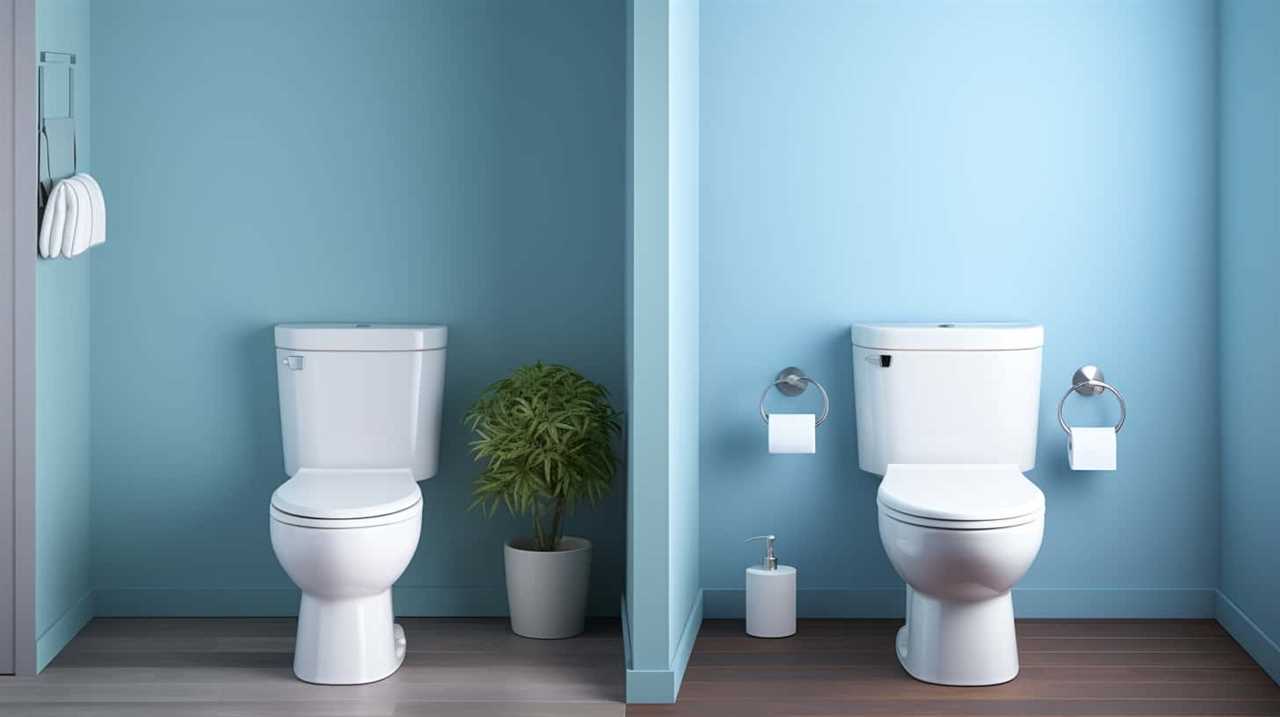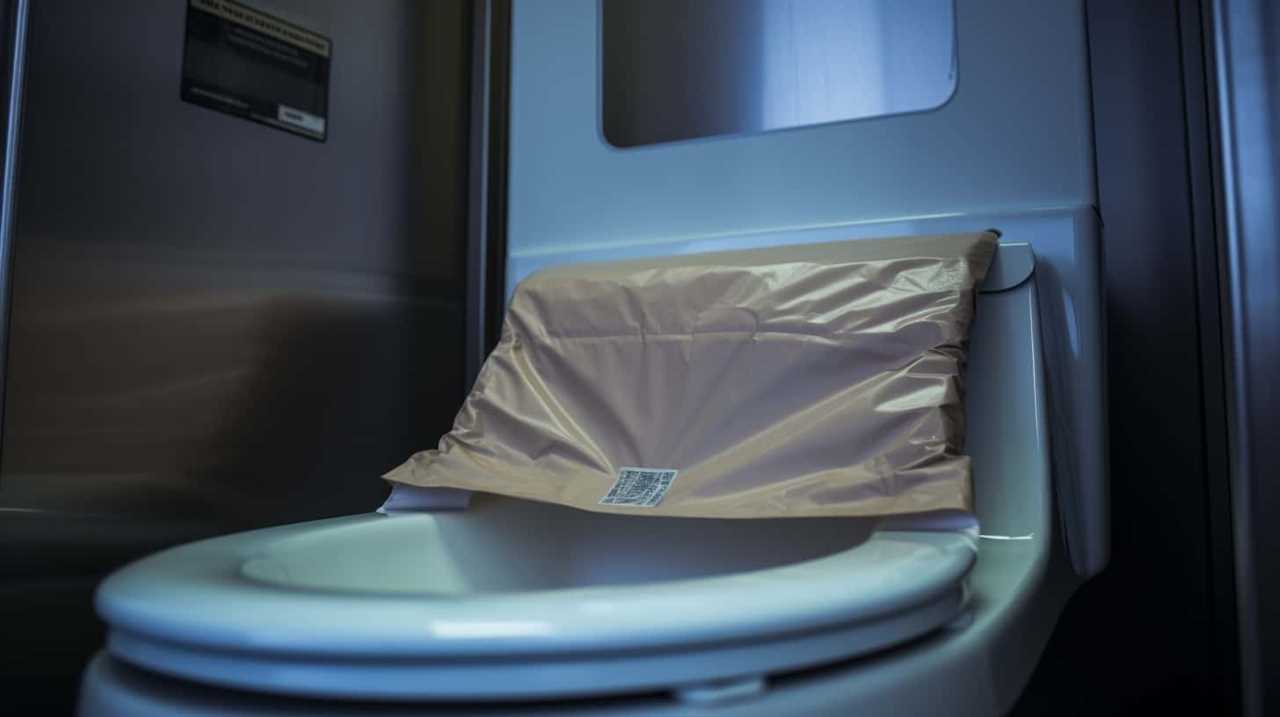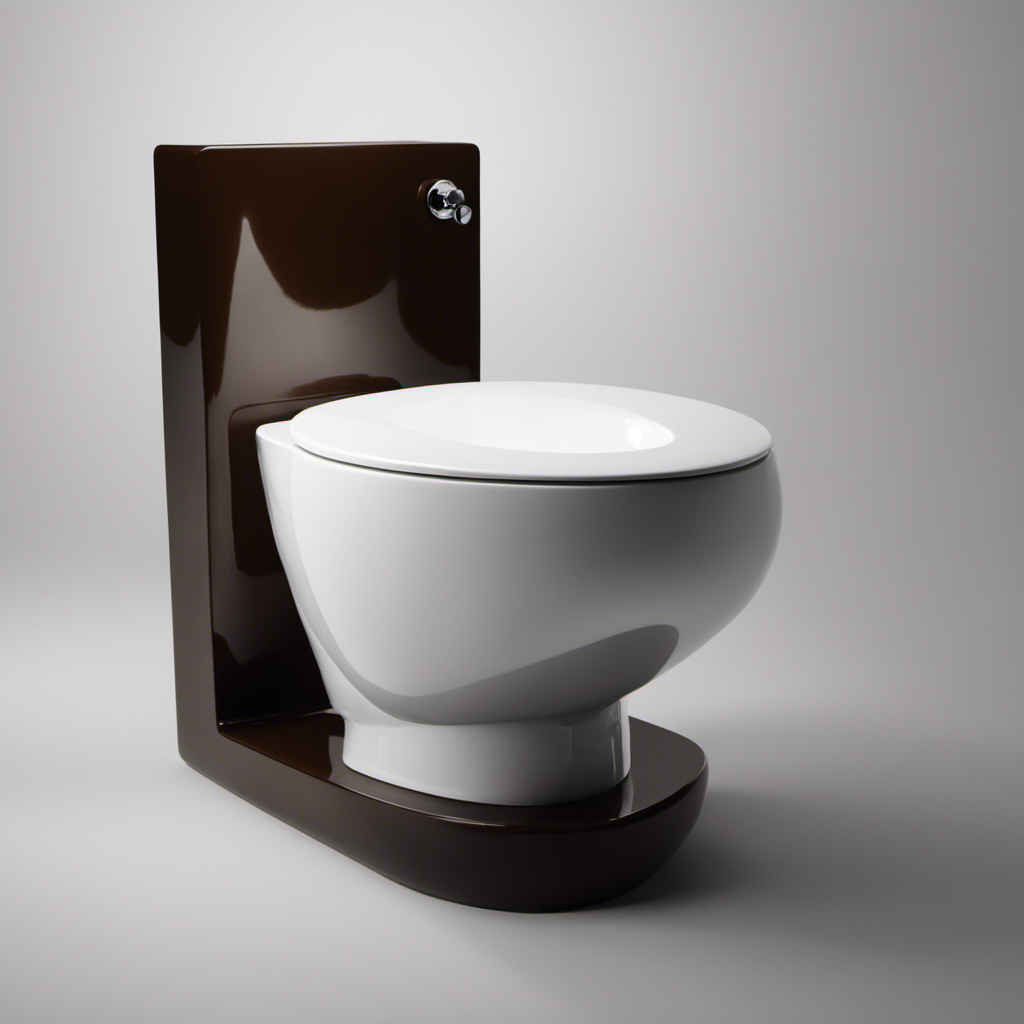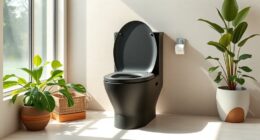Ever thought about whether it’s safe to dispose of food in the toilet when you have a septic tank? Look no further, we have the answers you’re looking for.
In this article, we will dive into the intricacies of septic tank functionality, explore the potential impact of flushing food, and provide alternatives to keep your septic system in top shape.
So, let’s get straight to the point and uncover the best practices for maintaining a healthy septic system.
Key Takeaways
- Flushing food down the toilet can cause clogs, disrupt bacterial balance, and increase maintenance requirements for a septic tank.
- Fibrous, greasy, and starchy foods should never be flushed as they can cause pipe blockages and costly repairs.
- Composting food waste and using a garbage disposal are eco-friendly alternatives to flushing food down the toilet.
- Proper waste disposal, regular inspections, drainfield maintenance, and septic tank pumping are essential for maintaining a healthy septic system.
Understanding the Function of a Septic Tank
We can better understand the function of a septic tank by looking at how it works to safely and efficiently process wastewater.

A septic tank is an underground system that collects and treats the wastewater from a home or building. It’s designed to separate solid waste from the water, allowing the water to flow out into the drain field for further treatment.
Proper septic tank maintenance is crucial to ensure its optimal functioning. Regular inspections, pumping, and cleaning are necessary to prevent clogs, backups, and system failures.
Additionally, septic tank installation should be done by professionals who follow proper guidelines and regulations. This ensures that the tank is properly sized and located, and that it functions effectively for years to come.
Impact of Flushing Food on Septic Tank Health
To assess the impact of flushing food on septic tank health, it’s important to consider the potential consequences of this practice on the overall functioning and longevity of the system. Flushing food down the toilet can have significant negative effects on septic tank maintenance, leading to costly repairs and potential system failure.

Here are three key consequences of flushing food:
- Clogging: Food particles can accumulate in the septic tank and cause blockages in the pipes, leading to backups and slow drainage.
- Imbalance of bacteria: Septic tanks rely on a delicate balance of bacteria to break down waste. Flushing food can disrupt this balance, reducing the efficiency of the system and potentially causing foul odors.
- Increased maintenance requirements: Flushing food increases the frequency of septic tank pumping and may require additional additives to restore the bacterial balance.
Understanding these consequences highlights the importance of proper waste disposal to maintain a healthy septic tank system.
Types of Food That Should Never Be Flushed
While there are some food items that can be safely flushed down the toilet with a septic tank, there are certain types of food that should never be flushed. Flushing food items that can clog septic tanks can lead to various risks and complications.
For instance, fibrous foods like corn husks, celery, and fruit peels don’t break down easily and can cause blockages in the pipes. Greasy foods like oils, fats, and butter can solidify and form clogs, reducing the efficiency of the septic system. Additionally, starchy foods such as rice and pasta can expand when exposed to water, creating obstructions.

It’s important to avoid flushing these types of food to prevent damage to the septic tank and avoid costly repairs.
Transitioning into the subsequent section, let’s explore alternatives to flushing food down the toilet.
Alternatives to Flushing Food Down the Toilet
As we continue our exploration of flushing food down the toilet with a septic tank, let’s consider some alternative methods for disposing of food waste. Instead of sending food down the toilet, there are two effective and environmentally friendly options: composting food waste and disposing of it in a garbage disposal.
- Composting food waste:
Composting is the process of decomposing organic materials to create nutrient-rich soil. By composting food waste, we can divert it from landfills and turn it into a valuable resource for gardening and farming. Composting not only reduces waste but also helps improve soil quality and supports sustainable agriculture. - Disposing food waste in a garbage disposal:
A garbage disposal is a device installed in the kitchen sink that grinds food waste into small particles, which can then be flushed away through the plumbing system. This method is convenient, as it eliminates the need for manual composting and reduces the amount of food waste sent to landfills.
Both composting and using a garbage disposal offer efficient and eco-friendly alternatives to flushing food down the toilet. Choose the method that suits your lifestyle and contributes to a more sustainable future.

Best Practices for Maintaining a Healthy Septic System
We should regularly maintain our septic system to ensure its optimal health and functionality. Proper septic tank maintenance and septic system care are crucial in preventing costly repairs and avoiding system failures. Here are some best practices for maintaining a healthy septic system:
| Best Practices for Septic System Maintenance | Frequency | Description |
|---|---|---|
| Regular Pumping | Every 3-5 years | Pumping out the solids and sludge buildup prevents clogs and ensures proper system functioning. |
| Water Conservation | Daily | Conserving water usage helps prevent overloading the system and prolongs its lifespan. |
| Proper Waste Disposal | Daily | Avoid flushing non-biodegradable materials, chemicals, and excessive food waste down the drain. |
| Inspections | Annually | Regular inspections by a professional can detect potential issues before they become major problems. |
| Drainfield Maintenance | As needed | Avoid parking vehicles or planting trees near the drainfield to prevent damage to the system. |
Frequently Asked Questions
How Often Should a Septic Tank Be Pumped?
We should pump a septic tank every 3-5 years to prevent backups and maintain proper functioning. Signs of a full septic tank include slow drains, foul odors, and sewage backups. Regular pumping is crucial for optimal performance.
Can Flushing Food Down the Toilet Cause Clogs in the Plumbing System?
Flushing food down the toilet can have detrimental effects on sewage treatment and the environment. It can lead to clogs in the plumbing system and disrupt the delicate balance of a septic tank.
Are There Any Specific Types of Food That Can Be Safely Flushed Down the Toilet?
When it comes to flushing food down the toilet, it is important to follow proper flushing etiquette. However, we recommend using alternative disposal methods for food waste to avoid potential clogs in the plumbing system.
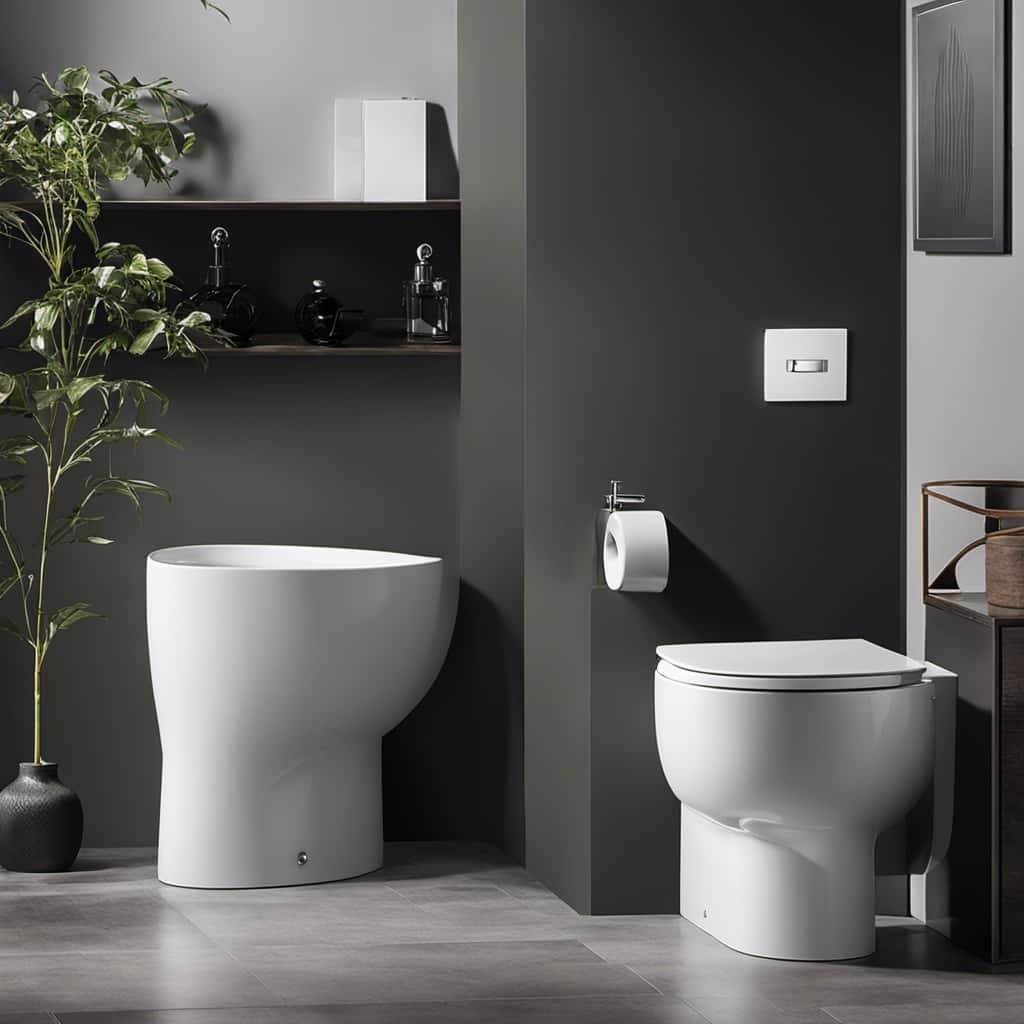
Can Flushing Food Down the Toilet Cause Damage to the Septic Tank?
Flushing food down the toilet can lead to septic tank overflow. To prevent this, avoid disposing of food waste in the toilet and instead use proper waste disposal methods.
Is It Safe to Use Septic Tank Additives to Break Down Food Waste?
Using septic tank additives to break down food waste may seem convenient, but it is not safe. Instead, composting food waste offers numerous benefits such as reducing landfill waste and creating nutrient-rich soil for gardening.
Conclusion
In conclusion, treating your septic tank like a delicate ecosystem is crucial for its health and longevity.
Just as we wouldn’t dump harmful chemicals into a pristine river, we shouldn’t flush food down the toilet.

The decomposition process in a septic tank is designed for waste, not food particles.
By being mindful of what we flush and following best practices, we can ensure our septic systems continue to work efficiently and protect our environment.
